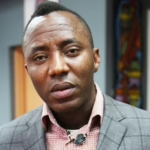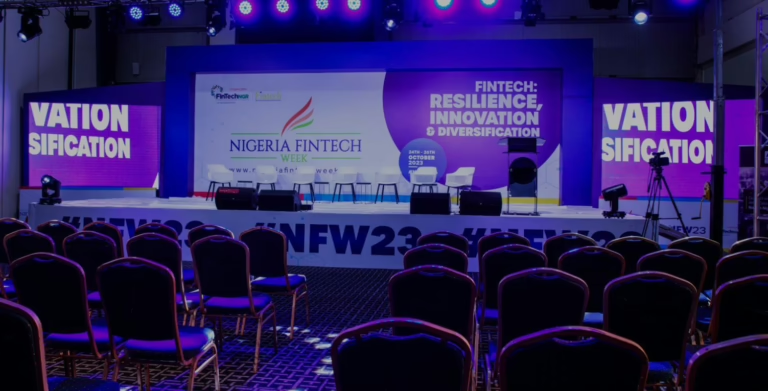The opening day of Nigeria Fintech Week 2025 burst forth with vibrant enthusiasm and high anticipation. Innovators, regulators, and investors from across the city gathered, united by a shared urgency to shape the future of fintech in Africa’s largest economy.
At the forefront was Dr. Segun Aina, President of the Africa Fintech Network, who addressed the audience with the confidence of someone who has witnessed the sector’s evolution from fragmented startups to a powerhouse spanning the continent.
Reflecting on the event’s growth since its inception, he remarked, “This has been one of the most impactful editions yet,” adding, “each year, the platform evolves, embodying the very essence of tomorrow’s entrepreneurial landscape.”

His statement quietly encapsulated the remarkable progress Nigeria’s fintech ecosystem has made-from grassroots mobile banking initiatives in bustling Lagos districts to innovative payment platforms developed in Ibadan and adopted continent-wide. This journey underscores how creativity can flourish amid complexity.
Yet, as the day’s discussions revealed, the focus has shifted beyond mere innovation. The pressing need is for sustainable, inclusive fintech solutions that harmonize with regulatory frameworks rather than evade them.

Fintech NGR & Host, Nigeria Fintech Week and Dr Jameelah Sharrieff-Ayedun, Vice President, Fintech NGR and Chairman, Nigeria Fintech Week, at the 2025
Fintech Week Day 1 (IMG: Webtv)
Striking harmony within Nigeria’s fintech ecosystem
Next to address the gathering was Yusuf Rakiya Opemi, Director of the Payments System Supervision Department, representing the Central Bank of Nigeria Governor, Olayemi Cardoso. His message balanced optimism with prudent caution.
He opened by recognizing the sweeping changes transforming Nigeria’s financial landscape, urging stakeholders to view regulation as an ally rather than an obstacle.
“Our fintech environment thrives on a dynamic interplay between innovators and regulators, balancing inclusion with security, and competition with cooperation,” he emphasized. “Compliance with verification standards is not a hindrance but a cornerstone for enduring growth.”
This perspective resonated strongly with entrepreneurs and operators who have often felt the strain of regulatory oversight.
He clarified that the CBN’s intent is not to hinder innovation but to ensure that technological advancements do not compromise financial stability. The delicate balance between fostering progress and safeguarding the system is especially pronounced in Nigeria, where policy shifts can impact millions of small enterprises and everyday users relying on fintech services.
To illustrate, he cited recent data: “In the past year alone, digital transactions reached 4.12 billion, amounting to ₦384 trillion as of July 2025.”
The impressive statistics sparked murmurs across the room, highlighting the deep integration of digital payments into Nigeria’s economy. Yet, this growth also brings complex challenges around regulation, trust, and equitable access.
He acknowledged that while urban centers enjoy seamless digital transactions, rural areas still face significant hurdles. Many remote communities depend on informal agents for cash access. “Financial inclusion transcends technology,” he noted. “It means ensuring every Nigerian, whether in a metropolis or a distant village, can engage fully in the digital economy.”
He also referenced recent regulatory initiatives aimed at formalizing agent banking, including new daily transaction caps for point-of-sale agents and mandatory geo-tagging of devices. These measures aim to enhance transparency and accountability within the expanding network of payment facilitators.

Beyond regulatory compliance, he stressed the importance of forging strong partnerships between regulators and innovators. “The future of fintech depends on collaboration, not isolation,” he said. “We must foster cooperation among banks and startups, government and private sector, established firms and emerging disruptors.”
His address left a reflective silence in the room. It was a measured keynote, one that lingered in the minds of attendees, reminding them that building a robust digital economy requires harmony-much like an orchestra where every instrument must listen and respond to the others.
When Blessing Adediran took the stage to deliver a keynote on behalf of Senator Tokunbo Abiru, the focus shifted from regulatory frameworks to visionary leadership.
“This year’s theme, Orchestrating Nigeria’s Digital Future, is a rallying cry,” she declared. “It underscores that the innovations we nurture today will define our nation’s tomorrow.”

She paused deliberately before adding, “Just as an orchestra requires many musicians, our digital future demands collective effort and shared responsibility.”
This metaphor resonated deeply at Nigeria Fintech Week, which was simultaneously hosted in two other cities. Historically, Nigeria’s digital success stories have often highlighted individual pioneers who overcame adversity.
Adediran’s remarks reframed this narrative, emphasizing that the country’s digital destiny hinges on unified action-bridging public and private sectors and crafting policies that proactively encourage innovation rather than merely reacting to it.
She called for a strategic approach to cultivating digital talent, empowering homegrown startups, and aligning national infrastructure with the demands of a globalized technology economy. “Through strong partnerships and collaborative efforts,” she concluded, “we will build a Nigeria that is not only digitally empowered but also a global leader in innovation.”























0 Comments